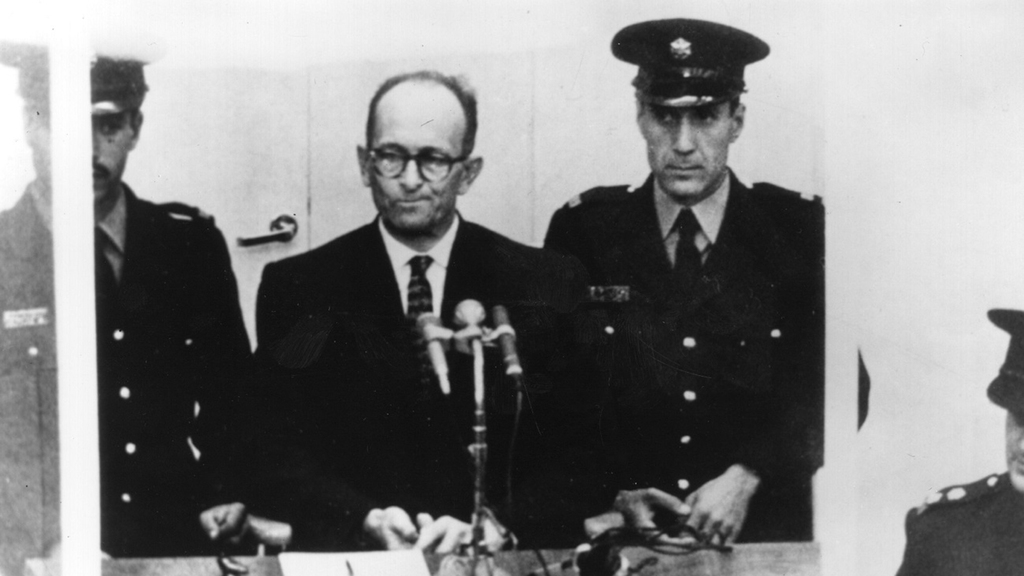There is a day in 1960 that retired Supreme Court justice Gabriel Bach, who recently celebrated his 94th birthday, will never forget.
"When I heard the footsteps of the prisoner who was being brought to me, I thought it could have all ended entirely differently," he recounts.
"I was a child born in Germany, who escaped it in 1938. My fate and that of the prisoner could have been the opposite of what it turned out to be."
Bach and his family left Berlin just two weeks before Kristallnacht (the Night of Broken Glass), a pogrom against Jews carried out by Nazi paramilitary forces and civilians throughout Germany. Synagogues were torched, businesses vandalized and Jews were murdered by the mob.
He took a deep breath before his first face-to-face encounter with the prisoner whose name was Adolf Eichmann.
"I struggled to appear calm," Bach says. "When I saw him, I thought of what he had done and that he was responsible for the murder of many millions of Jews."
A few days earlier, then-prime minister David Ben Gurion announced that Israeli security forces had apprehended Eichmann in Argentina.
A leading member of the Nazi regime, Eichmann was among those responsible for the Final Solution - the Nazi program to exterminate Europe's Jewry. He was brought to Israel to face justice in a trial that began 60 years ago, almost to the day.
Soon after his capture, Bach, then a lawyer in the State Prosecutor's Office, received a call from then justice minister Pinchas Rosen.
Rosen asked him to join the prosecution's team in Eichmann's trial under the leadership of the attorney general Gideon Hausner. Bach accepted the position immediately.
Bach was a natural choice. He was fluent in German and a meticulous jurist. He was initially appointed as legal advisor to Unit 06 of the Israel Police, which was set up to assemble the evidence against Eichmann.
The unit worked out of the Al Jalame Prison (today called Kishon Prison) outside Haifa. Vast amounts of documents collected all over Europe were brought there and formed the basis of the case built against Eichmann.
"For nine months I lived in a hotel in Haifa and spent each day in the prison in order to study the documents and prepare the trial," Bach says.
5 View gallery
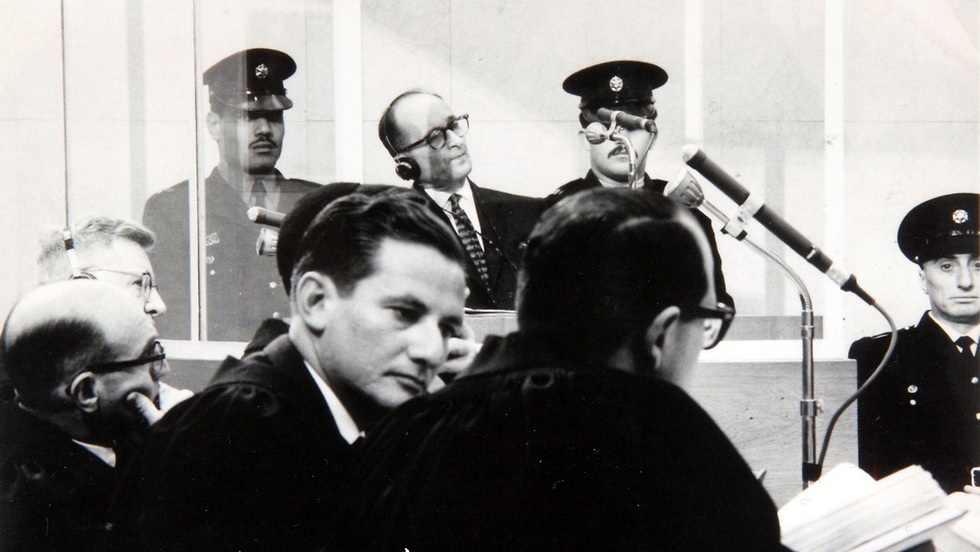

Gabriel Bach as a prosecutor in the Eichmann trial in 1960
(Photo: Bach family photo)
Eichmann was placed in the prison to await his trial after all other inmates were removed from the facility.
As part of his duties, Bach liaised between Eichmann and the outside world. If the prisoner had a request, he was to inform Bach in order for it to be addressed.
"Eichmann tried to be polite," Bach says. "Every time he entered my office, he would stand to attention."
5 View gallery
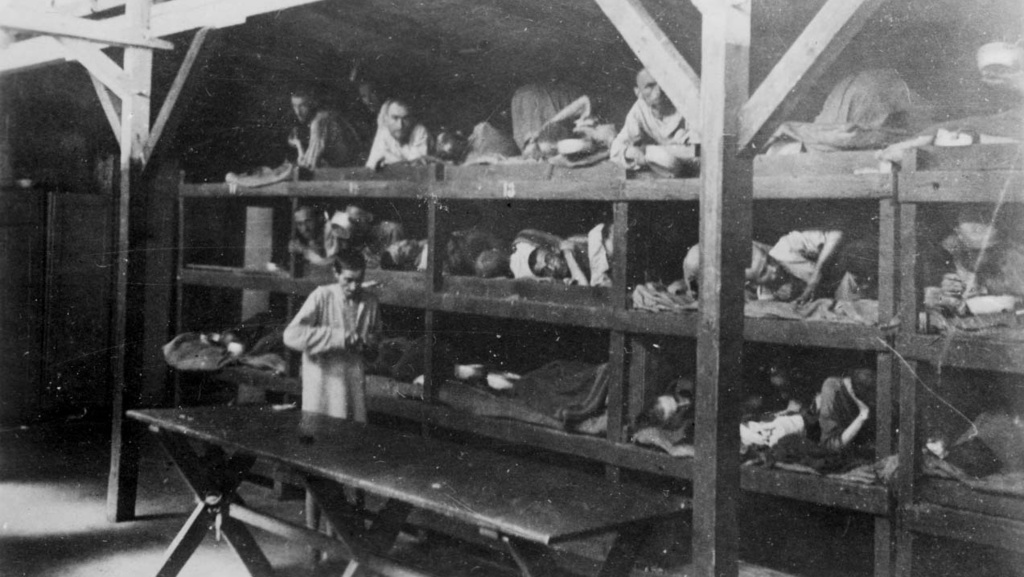

Prisoners in a barracks at the Auschwitz death camp during the Holocaust
(Photo:Reuters)
Preparations for the trial were carried out expeditiously. The mountain of documents painted a shocking picture of Eichmann's diabolical dedication to the task he was given, but that was not enough.
"It was clear to us from the start, that in order to get a conviction we could not rely solely on documents and must have the testimony of witnesses who could recount what had happened to them during the Holocaust. We had no doubt of the importance of such testimonies," he recalls.
The decision to put witnesses on the stand stemmed from legal considerations but had an additional, critical role in the way we have come to understand and remember the events of the Holocaust to this day.
No less than 110 people testified in the Eichmann trial, telling of their personal experiences of life in the ghettos and the concentration and extermination camps of the Nazi regime.
5 View gallery
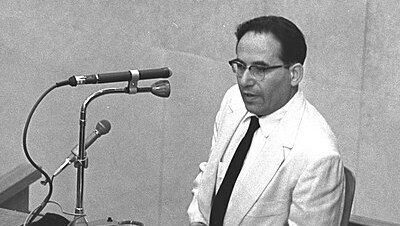

Holocaust survivor and author Yehiel Dinur Katzetnik testifies at the Eichmann trial
(Photo: GPO)
This would be the first time that the Holocaust was exposed in all its horrors and monstrosity.
"We were aware of the historical importance of the revelation of events to the world, as they were recounted by witnesses," Bach says.
The testimonies were difficult to hear and became the central body of evidence in the trial - but they were also a story waiting to be told.
The testimony of the 110 witnesses, some of whom had not come into direct contact with Eichmann during the war, evoked criticism of the Israeli legal system.
Some called the proceedings a show trial and an opportunity for Jews to have their revenge on the Germans, and not an execution of justice.
But Bach believes the trial was conducted properly according to criminal law.
"We provided real evidence for his conviction," he says. "We did not know until the last moment what the verdict would be."
5 View gallery
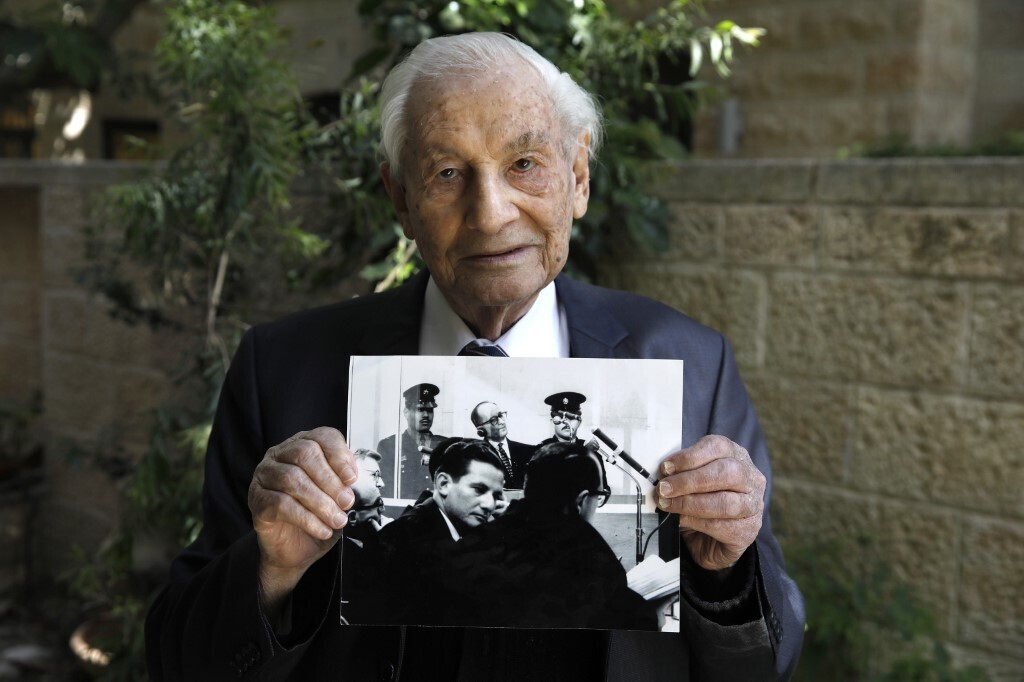

Retired Chief Justice Gabriel Bach holding a picture take of him during the Eichmann trial in 1960
(Photo: AFP)
Bach was not only satisfied with verdict, but also with the sentence.
"My opinion was that in cases of crimes against humanity and mass murder, the death penalty must be applied," he says.
After Eichmann asked the president to commute his sentence, Bach made sure the execution would take place shortly after the request was denied.
He did "in order to prevent any hijacking or kidnapping attempts to prevent the execution."
Adolf Eichmann was hanged at Ayalon Prison in Ramla just after midnight on June 1, 1962.


